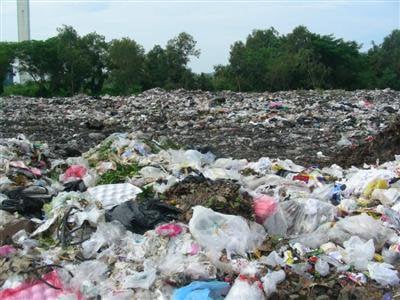OPINION: A positive step at last for Phuket

PHUKET CITY: In a show of public-private sector co-operation, Phuket’s major retailers are working with the government to institute a nominal fee for shoppers who carry off their purchases in plastic bags.
The first of its kind in Thailand, the initiative is a sensible and long overdue attempt to deal with Phuket’s waste management crisis.
With each passing day, approximately 300 tonnes of additional waste – about 20 percent of it plastic – piles up at the landfill around the incinerator at Saphan Hin.
Phuket sells itself as a tropical paradise of sea, sun and sand, but long-suffering residents of nearby Ban Saphan Hin community would be quick to add a fourth ‘s’ to the list – stench.
Also affected are nearby schools and government offices, not to mention the island’s largest and most popular public park. That we truck waste from all over the island through Phuket Town and pile it up there turns the concept of ‘nimby’ (not in my back yard) on its head.
A new incinerator being built nearby is scheduled to go on line next year, but there is no time to spare in reducing the amount of waste we needlessly produce.
Significantly reducing the volume of plastic we use won’t be easy, even with a small financial incentive. For a start, our society seems more dependent on plastic packaging than most others on the planet we share.
Getting mom-and-pop shops, takeaway restaurants and even wet market vendors involved is essential.
A single takeaway meal for four people typically comes with about 20 plastic bags, many of them filled with small amounts of condiments that most of us already have at home.
Many of these are thrown away unopened. The only other common alternative available at most takeaway places is even more unpalatable: foam boxes lined with (you guessed it) plastic.
More environmentally-friendly food packaging alternatives are needed, such as those made of biodegradable bagasse or traditional banana leaf.
If people are forced to pay for all these plastic bags, there is a good chance customers will show up with a pinto (stacked stainless-steel containers) or some other type of reusable container.
With the island’s major retailers finally showing some sense of responsibility, let’s hope they can also be convinced to stop the very wasteful practice of door-to-door distribution of multi-page advertising materials on the island. A major contributor to the waste stream, the majority of these get carted away unread, right next to all the uneaten food.
Why not save on the production and distribution costs, pass the savings on to consumers, and help keep the island clean?
— Stephen Michael Fein
Latest Thailand News
Follow The Thaiger on Google News:


























